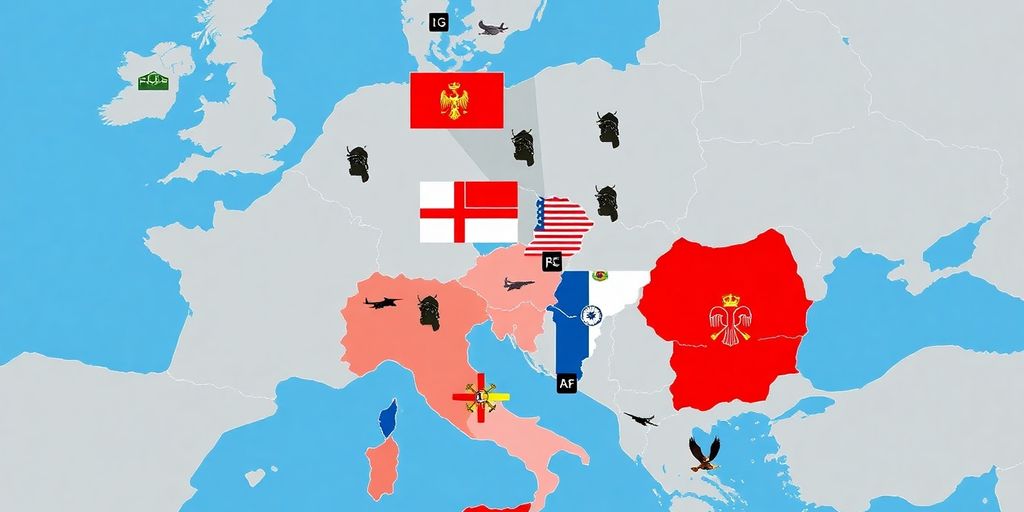The Western Balkans are currently experiencing heightened military tensions following a trilateral security agreement signed by Albania, Croatia, and Kosovo. This pact has raised alarms in Serbia, which is ramping up its military capabilities in response to perceived threats from its neighbors.
Key Takeaways
- A trilateral security agreement was signed between Albania, Croatia, and Kosovo, raising concerns in Serbia.
- Serbia is enhancing its military capabilities, including a €2.7 billion arms deal with France for Rafale fighter jets.
- The new military alliances are a response to historical rivalries and ongoing regional tensions.
Background of The Tensions
On March 18, 2025, Albania, Croatia, and Kosovo formalized their security cooperation through a trilateral declaration. This agreement is particularly significant as Kosovo’s independence remains unrecognized by Serbia, which views the pact as a direct threat to its national security.
Serbia’s military buildup has been alarming, with President Aleksandar Vučić pursuing arms deals with various countries, including a substantial agreement with France. This positions Serbia as the most militarized nation in the Western Balkans, raising fears of an arms race in the region.
Serbia’s Response
In reaction to the trilateral agreement, Serbia has sought to strengthen its military alliances, particularly with Hungary. Serbian media has framed this new alliance as a necessary response to the perceived encirclement by NATO-aligned countries. The Serbian Foreign Ministry criticized the trilateral pact, claiming it aims to isolate Serbia and create paramilitary structures in Kosovo.
Implications for Regional Stability
The militarization of the Western Balkans raises several critical questions about the future of peace in the region:
- Escalation of Arms Race: The ongoing arms deals and military enhancements by Serbia, Croatia, and Albania could lead to an arms race, increasing the risk of conflict.
- Political Maneuvering: The military agreements are often seen as political tools rather than genuine security measures, complicating diplomatic relations.
- Internal Divisions: Countries like North Macedonia find themselves caught between these rivalries, with significant Albanian populations that may influence their political alignments.
The Role of NATO and The International Community
Despite the rising tensions, NATO maintains a strong presence in the region, with member states surrounding Serbia. The alliance has reassured that there is currently no direct military threat, although the situation remains fluid. NATO’s involvement is crucial in preventing potential conflicts, as local elites are likely to avoid war due to the risks to their power and stability.
Conclusion
The Western Balkans are at a crossroads, with new military alliances forming against a backdrop of historical animosities and unresolved conflicts. As countries navigate these complex dynamics, the international community’s role in fostering dialogue and preventing escalation will be more important than ever. The region’s future hinges on whether these nations can prioritize peace over militarization and political maneuvering.






